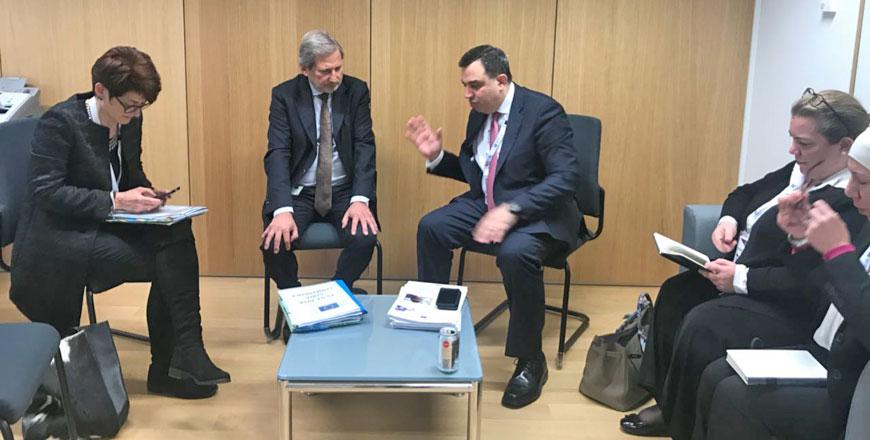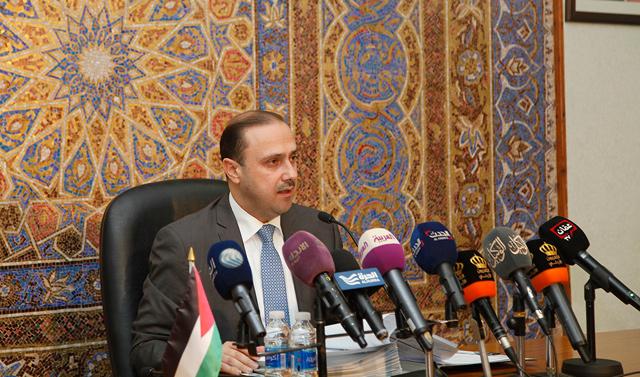You are here
Jordan, World Bank to draft 5-year reform matrix on growth, job creation
By JT - Apr 29,2018 - Last updated at Apr 29,2018

Planning Minister Imad Fakhoury speaks with EU Neighbourhood Policy and Enlargement Negotiations Commissioner Johannes Hahn on the sidelines of Brussels II recently (Photo courtesy of Planning Ministry)
AMMAN — The government is working with the World Bank and donor bodies to devise a five-year reform matrix on growth and job creation, Planning and International Cooperation Minister Imad Fakhoury said in a statement on Sunday.
The minister said that the matrix will help the government implement its reform agenda in line with the Economic Growth Plan (EGP) 2018-2022.
The matrix will include vertical and horizontal reforms aimed at enhancing Jordan's macroeconomic stability, reduce business costs, increase competitiveness through drafting suitable legislations and create a flexible labour market absorbing more workers.
It also seeks to improve and promote the national exports of goods and services, facilitate access to finance from local funding institutions, expand the social security network and conduct reforms in transport, energy and water, according to the minister.
The matrix and the financial programme will be part of Jordan's priorities to be discussed at the International Conference on Jordan scheduled in London before the end of 2018, the statement said.
The conference will review progress made on economic and structural reforms and provide an assessment of the EGP as well as the capital projects aimed at improving the national infrastructure and public services implemented through public-private sectors partnerships.
The statement was released following Fakhoury's participation in the second Brussels conference on the future of Syria and the region where he took part in a session on "best practices of aid delivery", outlining Jordan's expertise in this regard and the measures taken by the government to coordinate the work of non-governmental organisations and donor bodies.
Fakhoury stressed that the success in assistance delivery cannot be achieved without coordination with the government in line with the Jordan Compact and the Jordan Response Plan 2018-2020.
He noted that the conference participants agreed to work on preparing conditions allowing Syrians to return to their country in accordance with the international law.
"Jordan has reached a point of saturation with its current capabilities,” Fakhoury said, stressing the need to increase support to the Kingdom through grants and concessional financing in order to enable institutions to continue providing services for refugees and host communities.
The estimated cost of the crisis has amounted to $10.6 billion (averaging $2 billion per year), while the indirect costs are estimated at an annual average of $3.1 to $3.5 billion, he pointed out.
Related Articles
AMMAN — Deputy Prime Minister and Minister of State for Economic Affairs Jafar Hassan on Monday met with a World Bank (WB) delegation headed
AMMAN — The Cabinet, in its meeting on Monday chaired by Prime Minister Hani Mulki, reviewed the monthly agenda related to the Economic Grow
AMMAN — Prime Minister Hani Mulki on Saturday said that the government’s Economic Growth Plan (EGP) aims to automate procedures to rea

















